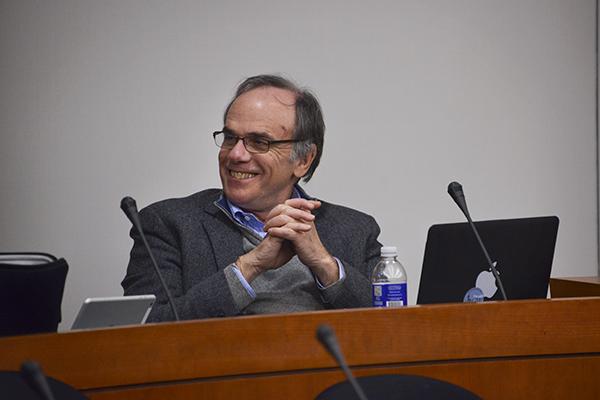GW’s partnership with a Saudi university for a doctoral program on educational leadership is just the latest in the University’s global connections.
The partnership with Taibah University in Medina, Saudi Arabia, will be based on courses offered in the Graduate School of Education and Human Development, and students will also receive a graduate certificate from GW, the University announced last week. The program is set to start its first phase immediately.
“The relationship affords our faculty and students an opportunity to interact with colleagues there, and enables Saudi educators and others to benefit from ongoing exchanges with our students and faculty,” Michael Feuer, the dean of GSEHD, said in an email Friday.
University officials will work with officials at Taibah University in a “consultative and collaborative capacity” to create a bilingual curriculum for the course, according to the University’s release. Faculty from both universities will meet in October to determine the specifics of the program, including which classes on certain topics will be offered.
The program will teach students how to work in public elementary and secondary schools and serve in diverse communities. The students will also have the opportunity to visit GW’s Foggy Bottom and Hampton Roads campuses.
In an effort to boost its international reach, officials have increasingly turned abroad for partnerships. Provost Steven Lerman told faculty in a letter in March that the University will add a new position in his office centered on GW’s international strategy.
Officials announced an exchange program with a Turkish university after University President Steven Knapp visited the country in November. GW also has ties to South Korea in the form of the Korean Management Institute, a D.C.-based program that connects students and faculty with Korean business leaders. GW had previously looked into launching a satellite campus in China but backed away from the plans last year.
None of GW’s peer schools have formal connections with Taibah University.
Philip Altbach, the director for the Center for International Higher Education at Boston College, said Taibah University, which opened in 2013, is a “very respectable institution” in Saudi Arabia. This year, U.S. News and World Report ranked the university, which has more than 20 colleges, at No. 48 on a list of the top 91 universities in the Middle East.
Altbach, who once lectured at the university, added that Saudi Arabia is “quite a good and innovative place” for higher education, and that Taibah University has “a director who really has big ideas about improving Saudi higher education.”
But he added that he has doubts about whether GW should be giving students a graduate certificate when they aren’t vetting the faculty teaching the content.
“[A certificate is] a piece of paper, but it does have the implementer of GW, which hopefully means something,” Altbach said. “You have nothing to do with the delivery of the program.”
Linda Lemasters, an associate professor of education administration, said in the release that the University turns to foreign universities to improve education on GW’s home turf.
“This is an increasingly global society,” she said in the release. “So the broader knowledge base that we can provide our emerging educational leaders, the better off we are.”








